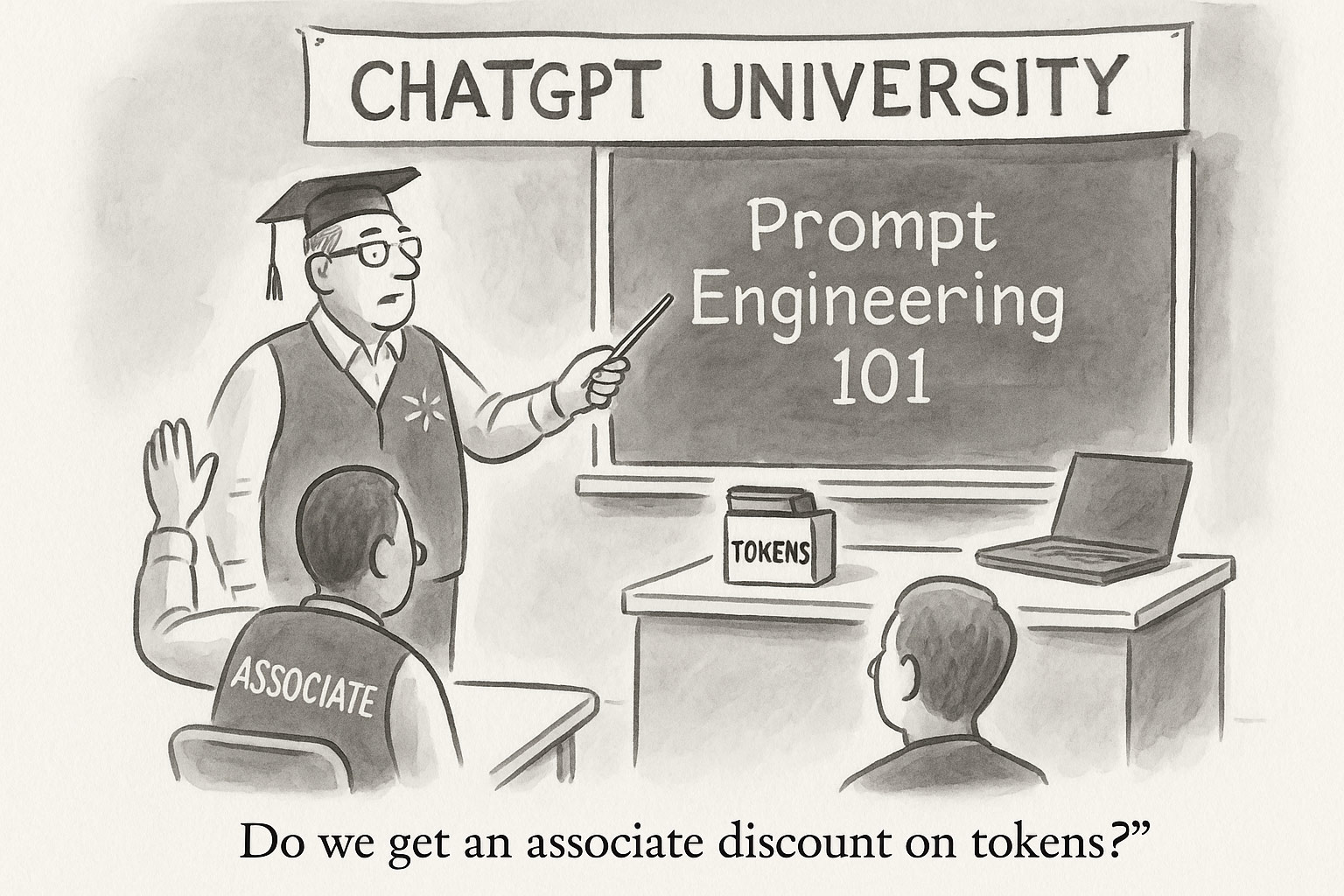
Walmart Said 'Let Them Eat Prompts’

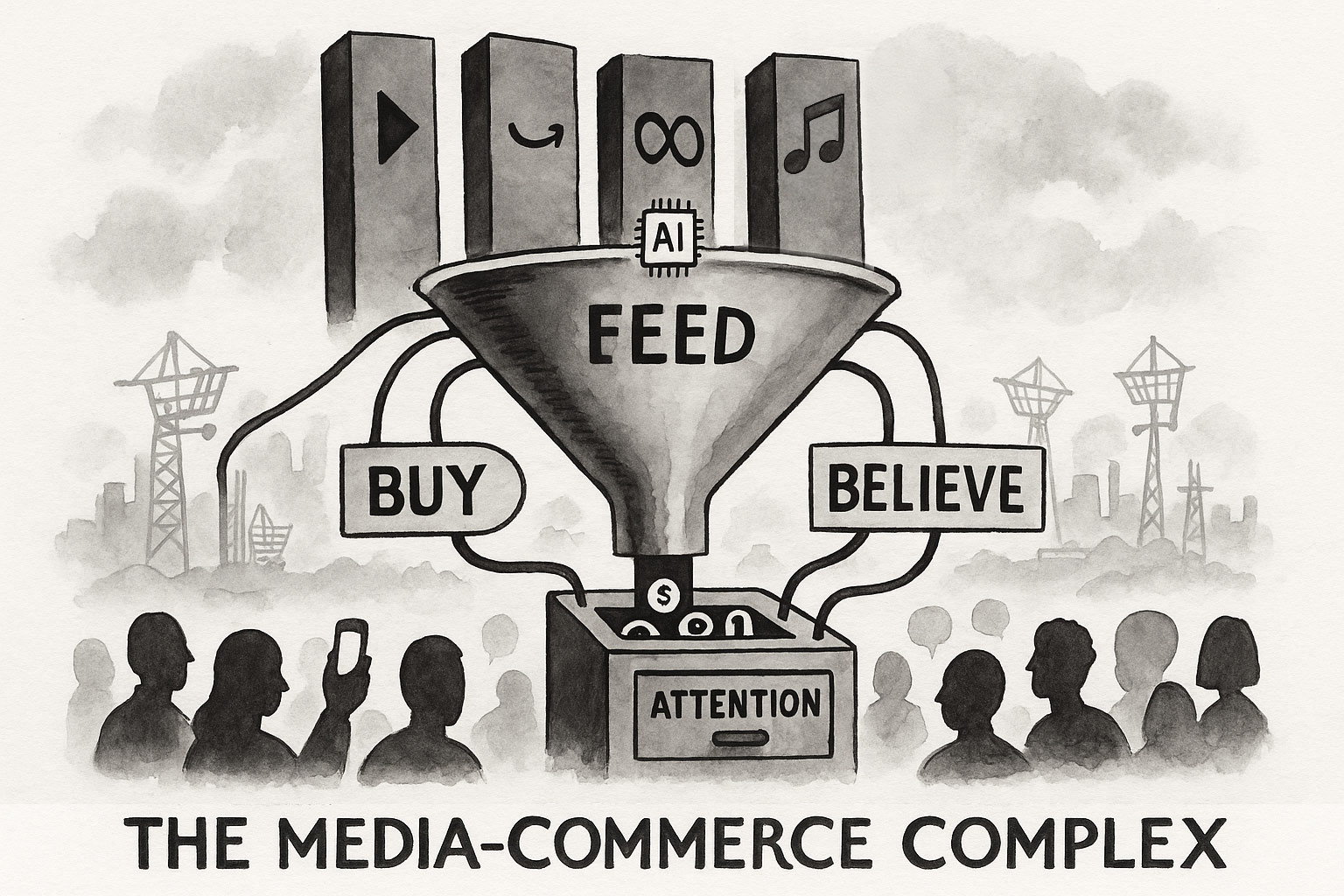
Welcome to Friday, futurists.
This week, Netflix and Amazon announced they're joining forces to create a new advertising powerhouse, combining Amazon's shopping data with Netflix's captive audience. It's the latest move in a consolidation game where the same companies that know what you buy also control what you watch, read, and believe.
We're living through the most concentrated media landscape in history. Meta decides what news you see while selling you products through Instagram. Amazon recommends your next purchase and your next binge-watch. TikTok serves up shopping links between conspiracy theories and misinformation.
The line between content and commerce has dissolved entirely, and a handful of tech giants control both sides of that equation.
This isn't just about business efficiency or streamlined advertising. When the same algorithms that drive you to buy also shape your worldview, we've created something unprecedented: a media-commerce complex that profits from both your purchasing decisions and your attention, regardless of what that attention focuses on.
While we cover commerce, the media is increasingly intertwined in our criticism of culture and commerce. Over half of Americans are always in shopping mode.
We cover commerce here, but commerce no longer exists in isolation. When shopping platforms become news sources and entertainment companies become retailers, the traditional boundaries of criticism break down. The question isn't whether technology is good or bad—it's whether we can maintain any critical distance when the same systems that recommend our next purchase also curate our reality.
Without citing the actual acts of violence that we have seen play out this week, it is clear that those who are committing harm wield something more dangerous than a firearm: they have unfettered access to social media platforms designed to amplify engagement at any cost. And that seems to have contributed, in no small way, to the current state of affairs.
Now, the same commerce giants control the future of artificial intelligence, which consumers admit they’re beginning to trust more than their fellow humans.
That can’t be any worse for society than what we have right now, can it?
Can it?
— Phillip

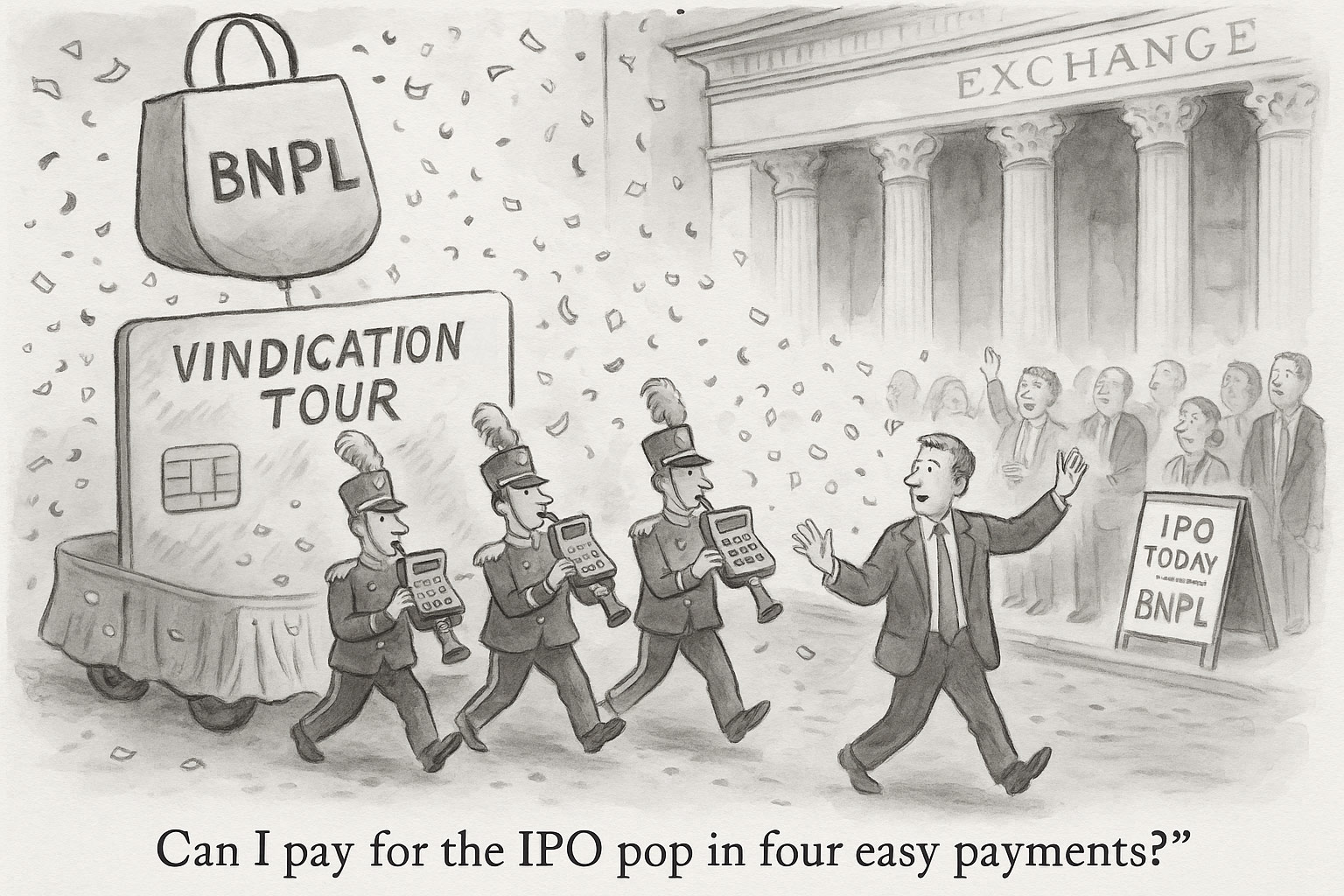
The BNPL Vindication Tour. Klarna’s debut on the New York Stock Exchange made waves, with the company opening at $52 a share, 30% above its IPO price of $40. On its first day, the company closed at $46.40, valuing the BNPL player at $17.5 billion.
While still far below its SoftBank-era valuation of $45.6 billion, Klarna’s market entry signals that, despite negative headlines surrounding its AI strategy, the appetite for fintech remains strong. With 111 million users and 790,000 merchant partners under its belt, Klarna maintains its strong position despite criticisms of the broader BNPL sector.
Netflix Said ‘Amazon, You Up?’. Amazon Ads and Netflix are joining forces to give advertisers using Amazon DSP direct access to Netflix’s premium ad inventory starting later this year. The integration spans 11 countries, including the US, UK, France, and Japan. The move simplifies TV planning and buying for marketers, combining Amazon’s first-party insights and AI-powered automation with Netflix’s engaged global audience. Advertisers can target audiences across Netflix’s library of premium content while using Amazon DSP’s clean room technology and campaign efficiency tools.


Delulu Labubu? French luxury house Moynat is showing that Lububu’s global aspirations are not just delusions of grandeur: its new capsule collection is a collab with Kasing Lung, creator of the cult-favorite collectible. Launching October 11, the collection reimagines Moynat’s signature Canvas M silhouettes, totes, hobos, travel bags, and the ultra-rare Mignon, with Lung’s mischievous cast of characters, including Labubu, Zimomo, and King Mon. Smaller leather goods and charms round out the drop, fusing comic-inspired whimsy with Moynat’s meticulous leather craftsmanship.
Labubu just recently became a pop-culture craze, but the collaboration marks the 10th birthday of Lung’s Monster series, showing that virility can sometimes be random and last for any period of time. Some think pieces are pondering whether the craze is already petering out, but this collection shows that the playful tug-of-war between luxury and novelty continues. Moynat is making a big bid on the new generation of collectors who see bags not just as accessories, but as cultural totems.
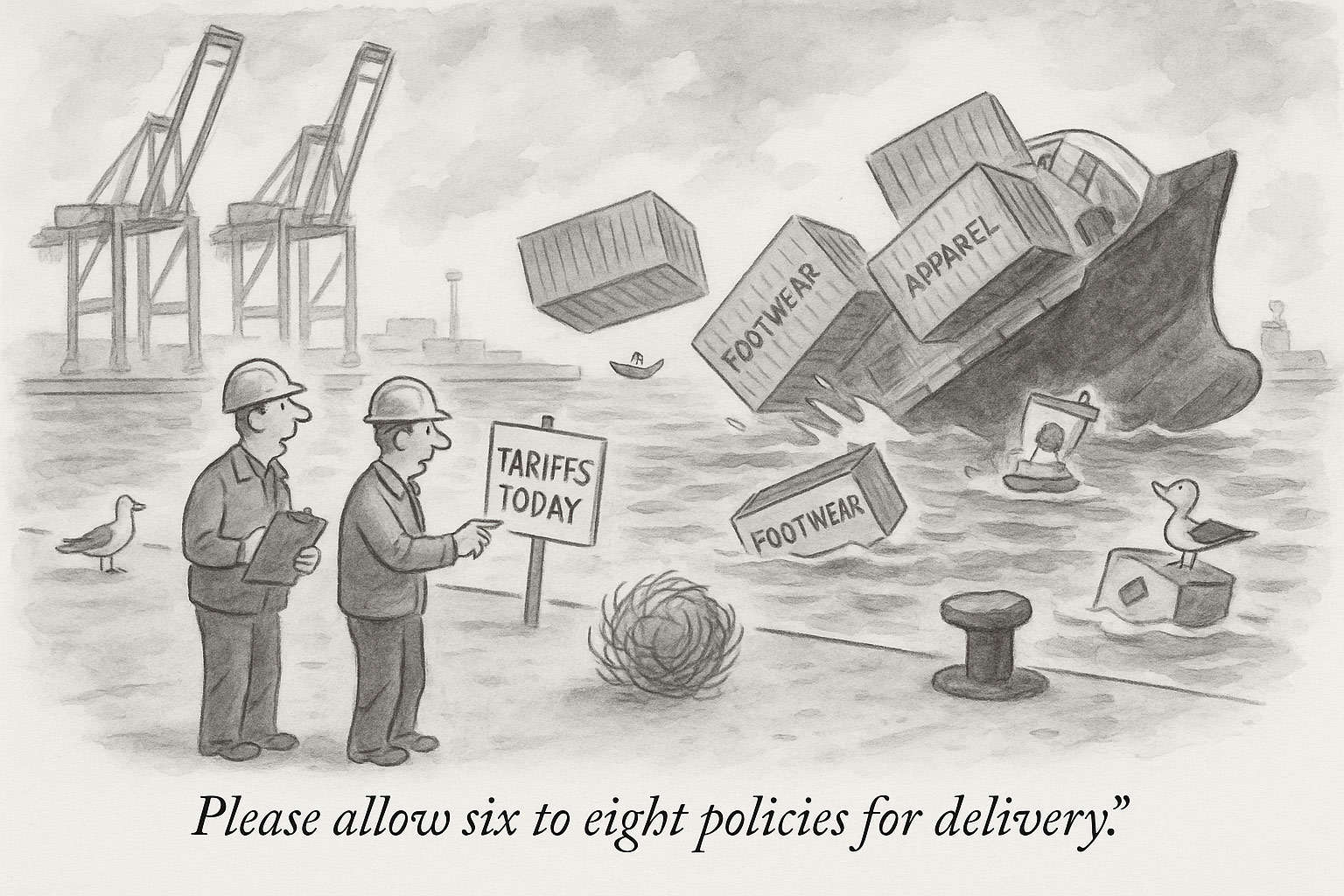
Port Clear-Out. Imports are slowing, and tariffs are to blame. The National Retail Federation and Hackett Associates forecast a 3.4% decline in U.S. cargo volumes in 2025, with steep year-over-year drops accelerating into early 2026. July’s near-record imports were retailers racing to stock up ahead of new tariffs, but that surge was short-lived. Reciprocal tariffs and continued global tensions have created a planning whiplash. “The uncertainty of U.S. trade policy is making it impossible to make long-term plans,” said NRF’s Jonathan Gold.
It’s the industry-wide echo of what we’ve already seen at the consumer level: a volatile pricing climate, shaky jobs market, and the ending of the de minimis rule sparked “maximum chaos,” creating a pretty bleak outlook as we head into peak holiday planning.
What doesn’t help? 70+ containers fell off a ship in the Port of Long Beach this past week. The containers held mostly shoes and apparel.
🔮Our Summer Spending Index breaks down all the dynamics shaking up browsing and buying behaviors. Future Commerce Plus members get access to this exclusive data and analysis.

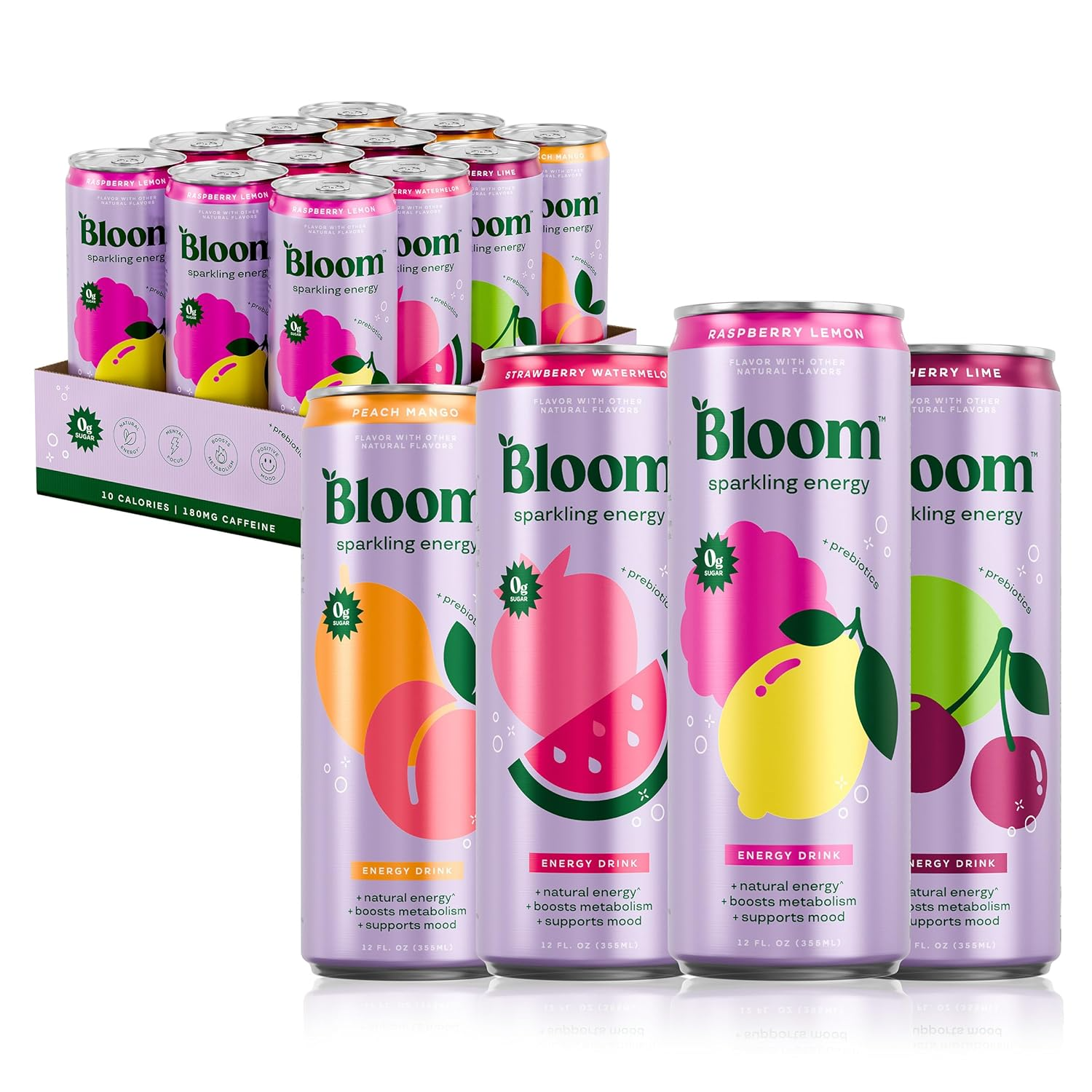
C4 Energy Goes Full Sugar Daddy Mode. Nutrabolt, maker of C4 Energy, has invested an additional $160 million in Bloom Nutrition, bringing its total stake to around $210 million. The deal deepens Bloom’s ties with Keurig Dr Pepper, expands its distribution channels, and supports new product platforms, including energy drinks, better-for-you sodas, and gummies. The partnership highlights the growing $125 billion energy and wellness sector, where beverage giants are accelerating investments in functional drinks targeting broader audiences, especially female consumers.

RTR’s ‘I'm Not Like Other Girls’ Phase. The fashion rental company is leaning into AI as the cornerstone of its turnaround. Subscriber growth is up 13.4% year over year, and a recapitalization plan is helping to stabilize its balance sheet. However, CEO Jennifer Hyman shared that new personalized recommendation features will help acquire new customers and improve retention rates. The new features will tailor browsing by designer, style, and occasion, while also powering new review summaries and fit guidance to simplify the shopping experience.
Rent the Runway’s AI investments, combined with its major inventory enhancements, new brand partnerships, social campaigns across TikTok, Reddit, and Instagram, and subscriber-exclusive events, aim to “reintroduce” the brand to investors, an effort Hyman calls “IPO 2.0.” The fashion rental market seemed shaky for a while, especially with consumer confidence wavering. But Rent the Runway’s movement, not to mention Nuuly’s staggering year-over-year growth, indicates that consumers may be looking for newness, but not necessarily to be tied down by a closet full of stuff.
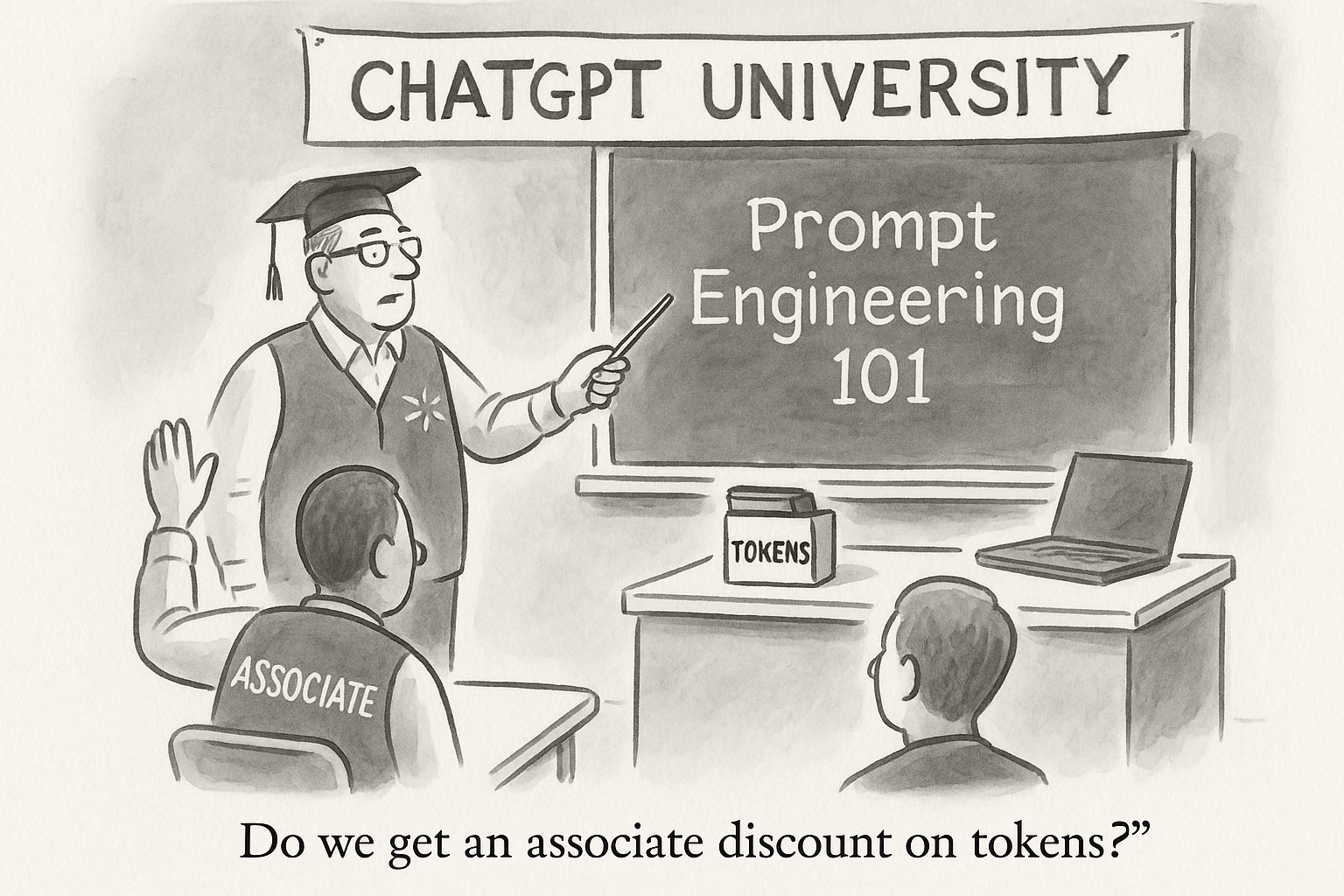
From Cashier to Prompt Engineer. Walmart just created ChatGPT University (no, really). Starting in 2026, Walmart’s US frontline and office employees will receive free access to OpenAI Certification through Walmart Academy, a customized training program that spans everything from AI basics to prompt engineering.
We repeat, this is a real thing.
The retailer has already rolled out AI-powered task guidance, multilingual translation, and conversational support tools, but this move signals something bigger: Walmart isn’t just adopting AI, it’s institutionalizing it. While rivals have leaned on automation to cut costs, Walmart’s bet is that human empowerment plus AI is the differentiator. As Walmart US CEO John Furner put it: “We’re putting the most powerful technology of our time in [associates’] hands, giving them the skills to rewrite the playbook and shape the future of retail.”








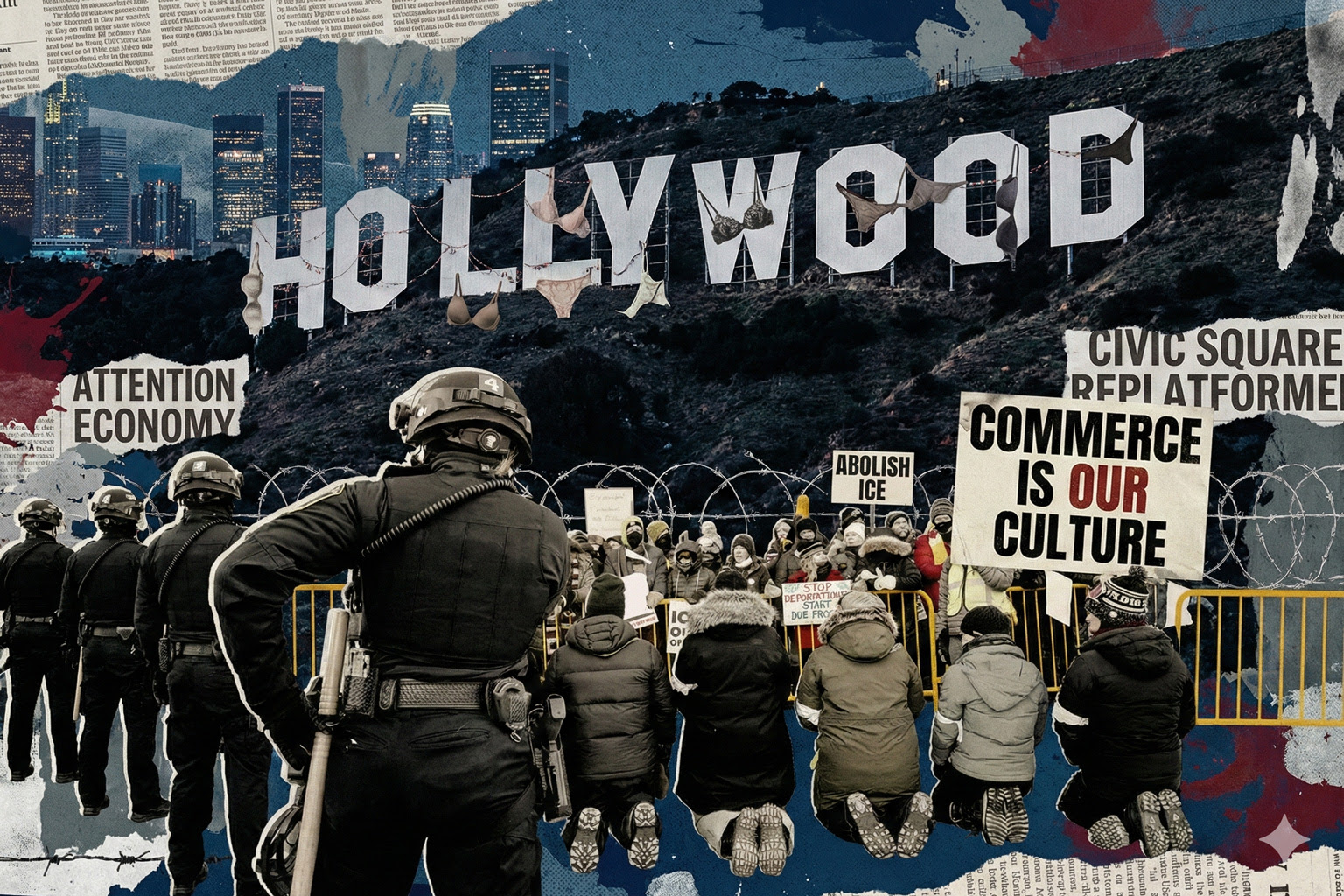

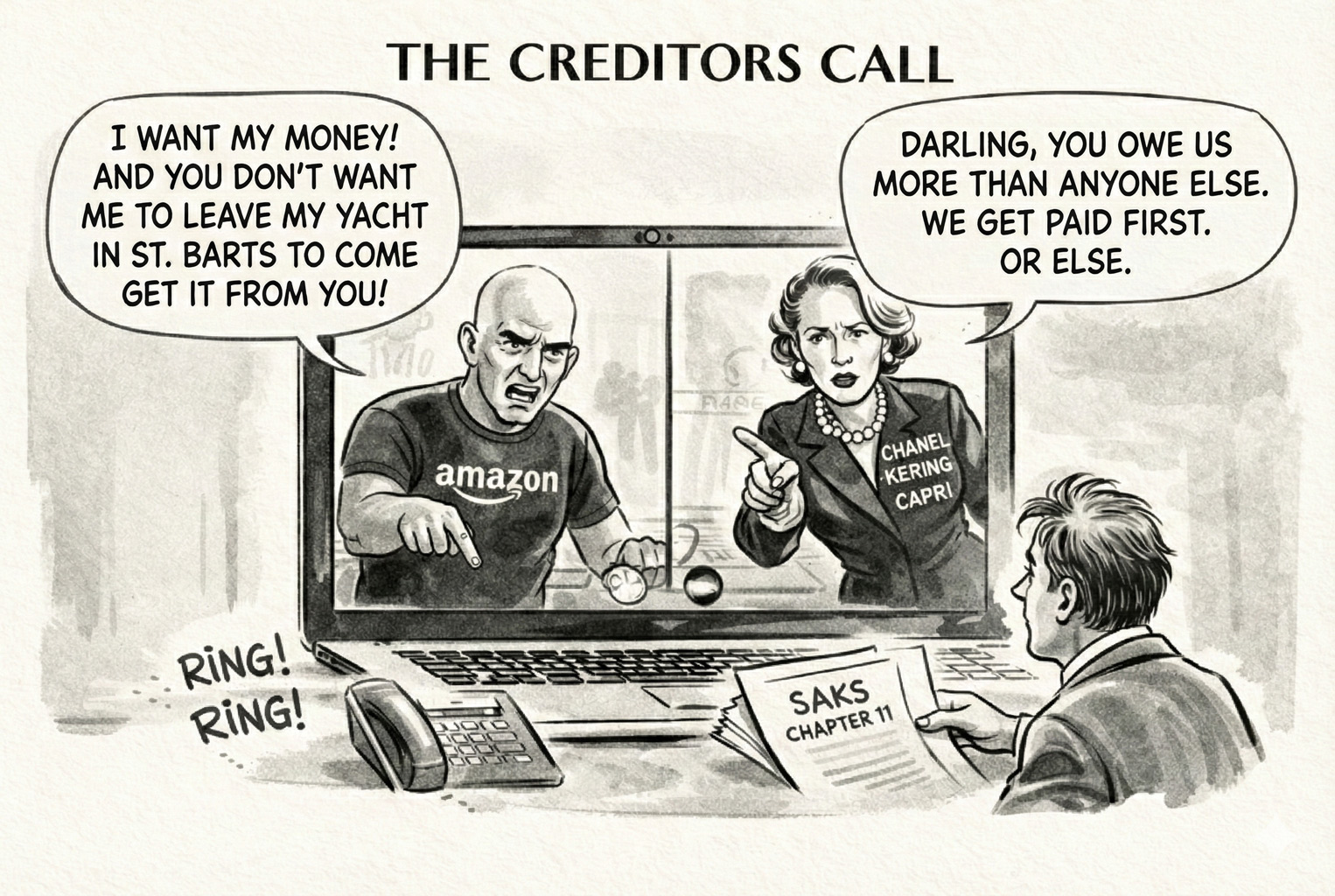
.svg)
